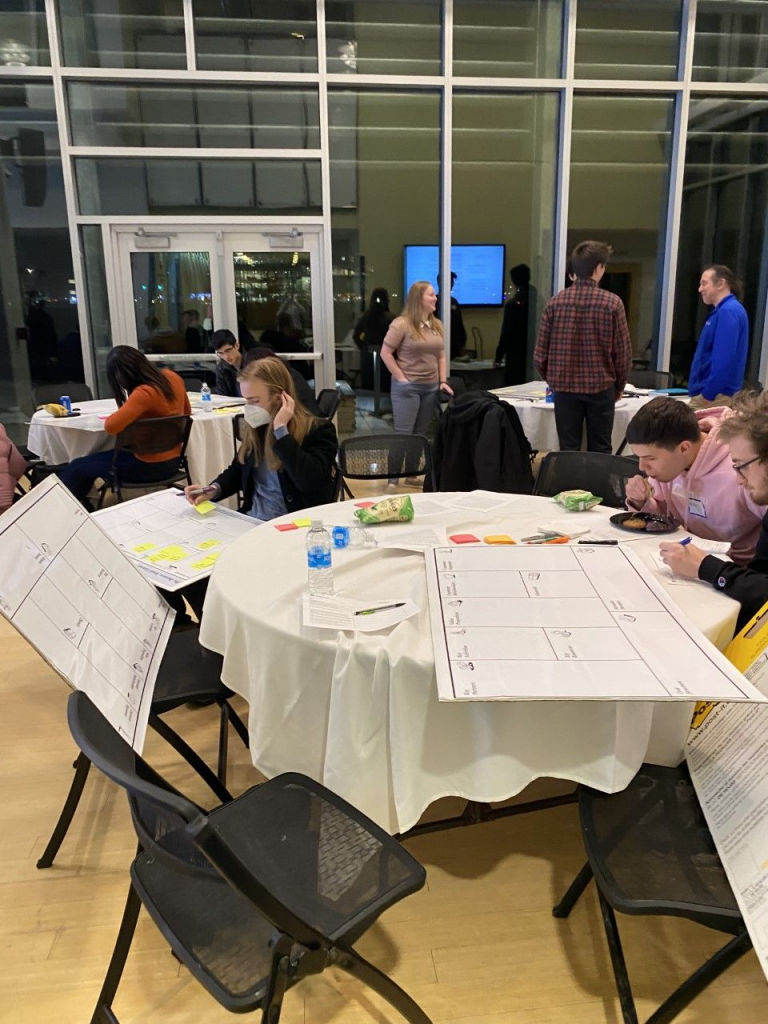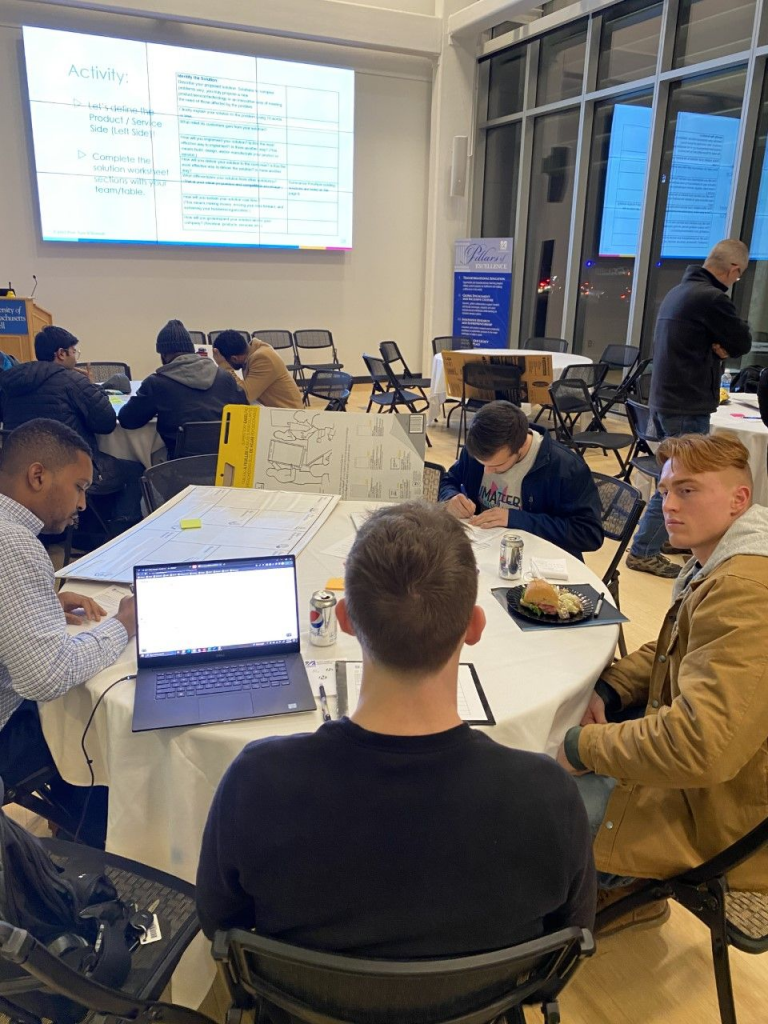On Wednesday, March 1st, DifferenceMaker held Workshop 3: Developing Business Models and Solutions at the Saab Center, Perry Atrium, from 5:30 – 7:30 p.m. This session helped student teams who applied to the $50,000 Idea Challenge to focus on their idea’s solutions by piecing together their business models.

To kick off the night, Dave Vatalaro, Rist DifferenceMaker Fellow, Rist DifferenceMaker Institute welcomed everyone. He expressed appreciation from the Rist DifferenceMaker for the support we have gotten from Tom O’Donnell, Executive Director at Innovation Initiatives; Maria Matarazzo, Adjunct Faculty at Manning School of Business; Khaled Abul-Hassan, Director at Office of Technology Commercialization; and Vijayendra Kumar, Licensing Manager at Office of Technology Commercialization. Next, he provided students with information on submitting their Idea Plan, announcements for semi-finalists, and reminders to schedule a meeting for one-on-one coaching with mentors. He then introduced the guest presenters for the night, who were Professors Dr. Carter Keough and Dr. Kelilah Wolkowicz, Francis College of Engineering, and Tom O’Donnell, Senior Director, Innovation Initiatives.
Professor Keough started off by providing examples of companies such as Gillette, FedEx, Zipcar, and Pill Pack. Each are successful companies in their own way, all from various industries in today’s market. For example, Gillette makes their profit by selling cheap razor handles that go along with expensive, high quality razor blades that attach to them. This allows customers to stay loyal to their brand, as they need to continually purchase specific Gillette blades that fit the handle that they already own.
Then, Mr. O’Donnell went further in depth and explained the multiple components needed to have a successful business model. He discussed factors such as the new venture timeline and each component of the business model canvas, such as customer segments, value proposition, revenue streams, and more. This allowed students to think deeply about details that will drive their ideas to success in the real world.
After the detailed lessons, the guest presenters encouraged students to work on their business models and solutions. They utilized business model canvas poster boards and solution worksheets to assist with this process. A business model canvas glossary was also provided to each student to help refresh their memory on the information that was provided.

Thank you to everyone that joined DifferenceMaker for Workshop 3! If you are interested in learning how to further develop your project for the $50,000 Idea Challenge, recruiting new team members, and gaining new skills, please register for the final workshop this semester. Dinner will be served!
Workshop 4 – Delivering Your Rocket Pitch, March 16
Questions? Email us at DifferenceMaker@uml.edu.
